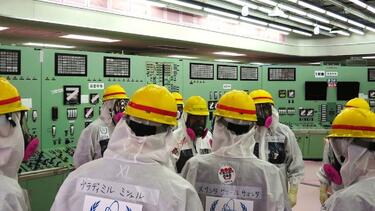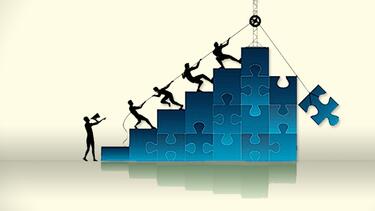All Insights Articles
How do you lead a company through a nuclear accident?
The 2011 tsunami and the meltdown of the Fukushima Daiichi nuclear power plant in Japan shattered the nuclear industry’s "safety myth" and prompted the shutdown of all nuclear power plants in the country. Naomi Hirose '83 talks about leading the plant’s operating company through an unprecedented cleanup and rebuilding effort.

Can profits and a social mission co-exist?
Professor Rodrigo Canales discusses his research into the trade-offs inherent in social enterprises and argues that people interested in the field should pay closer attention to the challenges of achieving both social good and market success.

What does a networked future look like?
The internet has already prompted large shifts in how many of us live our lives. What will happen when all of us are connected to the internet all the time? Eric Schmidt, executive chairman at Google, talks about the company's vision of the future.
How do you build a culture of innovation?
How does a successful company maintain a climate in which new ideas and risk-taking are encouraged? Tim Brown, CEO and president of the design consultancy IDEO, describes how he thinks about innovation and why empathy is an important part of the equation.
Jeffrey Sonnenfeld on Separating the Chairman and CEO Roles at JPMorgan
In a New York Times op-ed, Senior Associate Dean Jeffrey Sonnenfeld writes about the call to separate the chairman and CEO roles at JPMorgan Chase. “While the model can work on occasion, it is surely no panacea that ensures good economic results or good governance,” he argues.
Classroom Insights: Understanding Terrorism with Statistics
In an excerpt from his Policy Modeling class, Prof. Edward Kaplan walks through how statistical models can clarify questions about the best ways to fight terror plots.
Electricity Expansion Produces Large Development Gains in Brazil
Gaining access to electricity leads to larger improvements in income and education than previously estimated, according to new research by Professor Ahmed Mushfiq Mobarak.
What makes an organization change?
With the financial sector attempting to adapt to regulatory and economic uncertainty, firms are forced to prioritize and change. Phil Davis '85, an experienced management consultant, discusses the factors that can make organizational change succeed or fail, whether in the financial industry or another sector.

Classroom Insights: Grand Strategy for the CEO
How can business leaders cultivate the broad understanding and strategic agility they need to build successful organizations? Charles Hill, an accomplished diplomat and co-founder of the Studies in Grand Strategy course at Yale, talks about how ideas from great thinkers—from Herodotus to Clausewitz—can improve business decision making.
Webinar: Leadership and Purpose
How do you turn personal values and sense of purpose into a leadership approach? Four alumni recently recognized as Donaldson Fellows by the Yale School of Management discussed their experiences with leadership expert Tom Kolditz. The conversation, on April 4, 2013, addressed the challenges that leaders face in maintaining a sense of purpose and adapting personal goals and values to different organizational contexts, roles, and cultural environments.